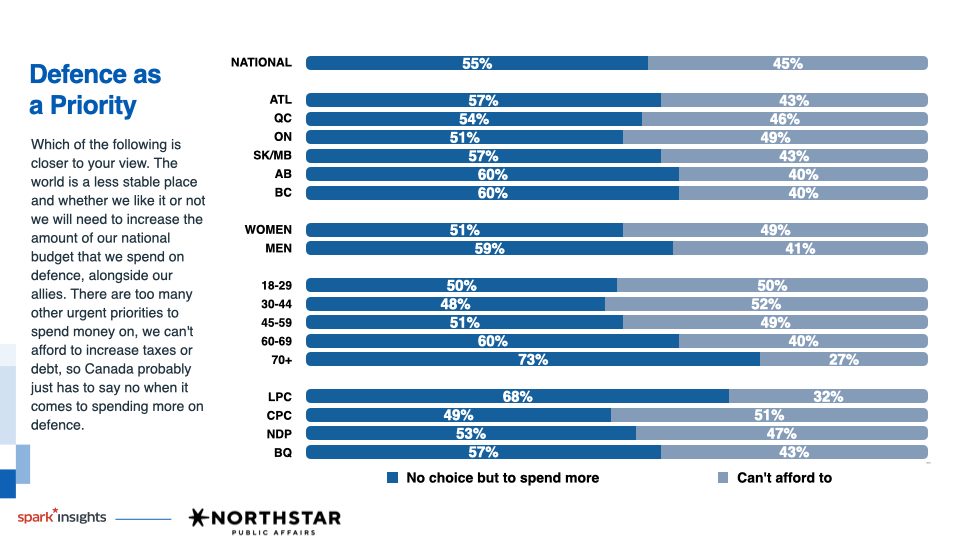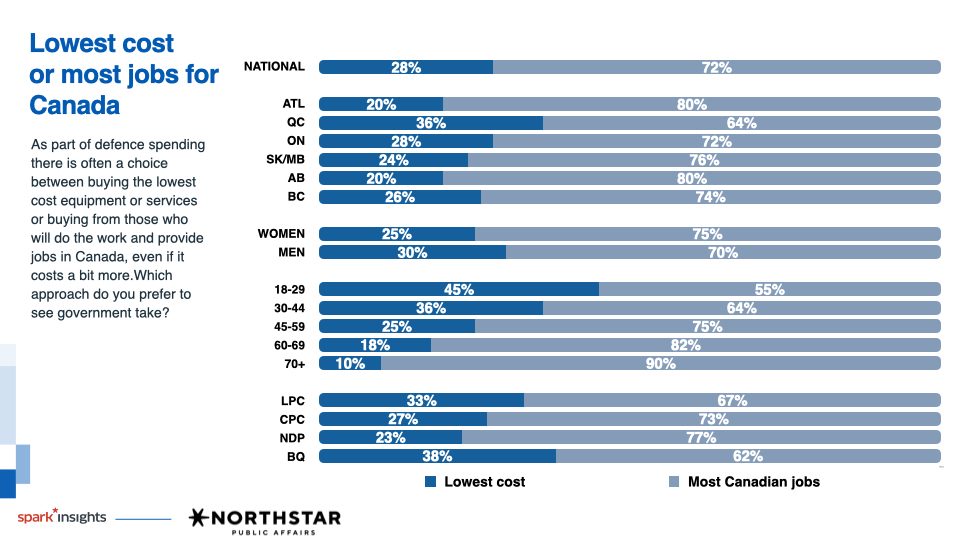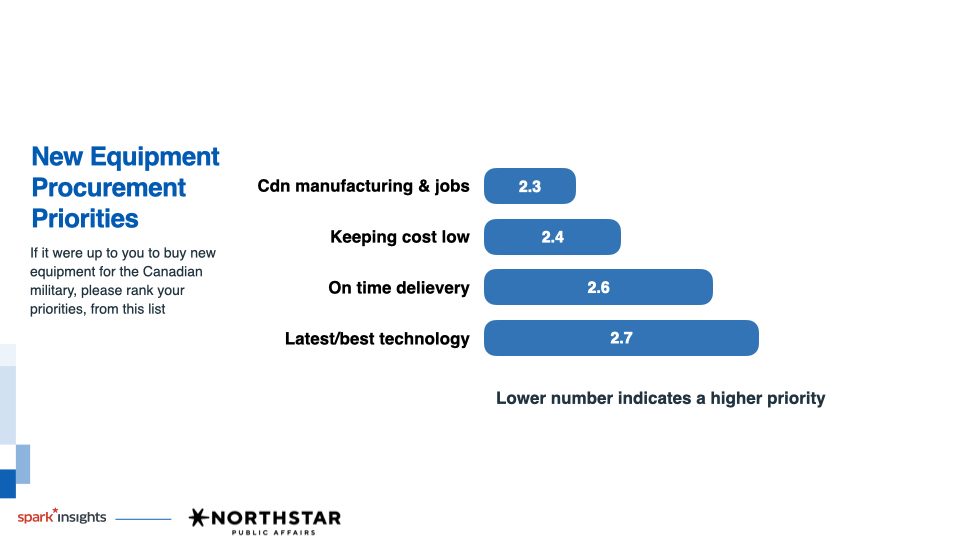Subscribe for more!
Subscribe to our newsletter for insights and articles on wide ranging issues including reputation management, branding, advertising, awareness, advocacy, and communications. You can unsubscribe anytime.
Follow us on social:

New spark*insights research shows a path forward on defence spending
Canada buys military equipment ponderously and hesitantly. We’ve got lots of conditions. Rethinking and revisions. If we were shopping retail, the store owner would be tempted to ask us to leave.
The reason for this approach is the deep seeded belief that the military only have one chance to get a procurement right. That there is no room for error and that the equipment must endure for several decades – a challenging task given the rapid advancements in technology.
But one thing is clear now – our normal approach is likely to be stress-tested big time. Coming out of the NATO Summit in Washington, there is no doubt the country is bound to be buying a lot more, spending a lot more, over a relatively compressed period of time. Whether under a Conservative or a Liberal government, whether tied to a 2% of GDP target or a smaller, “best effort” approach, the rate of spending is going up, or our best relationships are going to be even more strained.
Canadians generally say they are ok with defence spending, but rarely are they enthusiastic about it. To help understand the modern, post pandemic, cost of living stressed public opinion environment North Star Public Affairs and Spark Insights conducted some national opinion research we are using to assist our clients in this sector.
Some of the highlights speak to the current mood of the country.
Spending more on defence is something most people (55%) think we have no choice but to do, but a lot of people (45%) think we simply can’t afford to – given other priorities for spending and an aversion to higher taxes or debt.
While the world is less stable and Canadians see that challenge - it’s not the only thing on their minds.
Remarkably, Liberal voters are almost 20 points more likely than today’s Conservative voters to say Canada has no choice but to spend more. For those looking to understand what’s different about the Conservative movement today, or why Pierre Poilievre wouldn’t commit to the 2% of GDP defence spending target after Justin Trudeau did, these numbers speak to a fiscal caution, a tax aversion, and perhaps a bit of isolationism among today’s big C conservative voters.

If we are buying, Canadians want the emphasis on Canadian benefits (72%) more than lowest cost. (28%). However, it’s a sign of the times how age plays into this – those under 30 are 4.5 times more likely than those over 60 to want the priority to be lowest cost. Time and again in our surveys we see younger people today worried about spending that feels like it will help them with their urgent needs, and might put upward pressure on taxes.

Over the next five years, the competition for how to meet our defence spending targets will be the stuff of intense debate. Makers of ships, aircraft, and land based vehicles will see a larger budget, but a more complicated political environment. Sovereignty will feel like a priority for some voters, while others will focus on our commitment to alliances. Many will see this as an opportunity to ensure every dollar spent is truly well spent, stimulating a stronger technology, industrial, infrastructure, and talent ecosystem.
As far as Canadian voters are concerned, the top priorities would be domestic jobs and living within budgets.

In the past, it may have been simpler for politicians to defer buying decisions to military experts and public service procurement professionals. However, a required rapid increase in spending, coupled with public resistance to higher taxes, will make the next ten major spending choices some of the most consequential in recent memory.
The data referenced was drawn from a spark*insights online survey of a representative sample of 1,815 adults across Canada, between the dates August 3, 2024 and August 7, 2024.
For more of our research and insights into the politics of defence spending, contact Greg MacNeil greg@northstarpa.ca or Bruce Anderson bruce@sparkadvocacy.ca
spark*insights is led by Bruce Anderson, one of Canada’s leading and most experienced public opinion researchers. From polling and research to analysis and guidance, we help organizations, uncover the factors driving or influencing public perception to gain valuable insights into the shape and movement of the landscape.